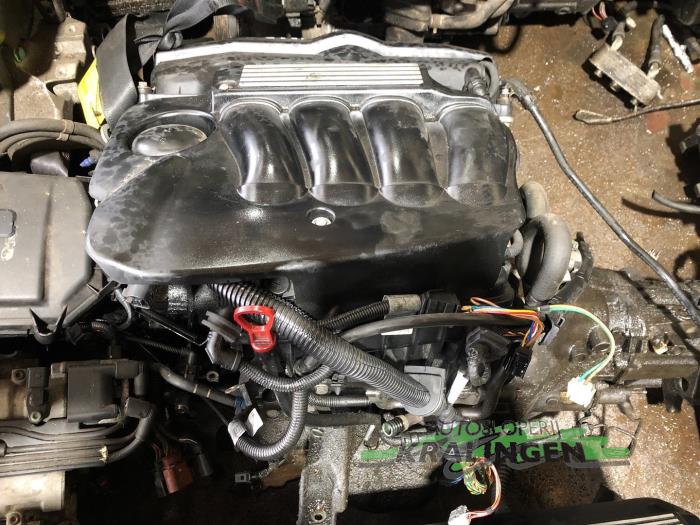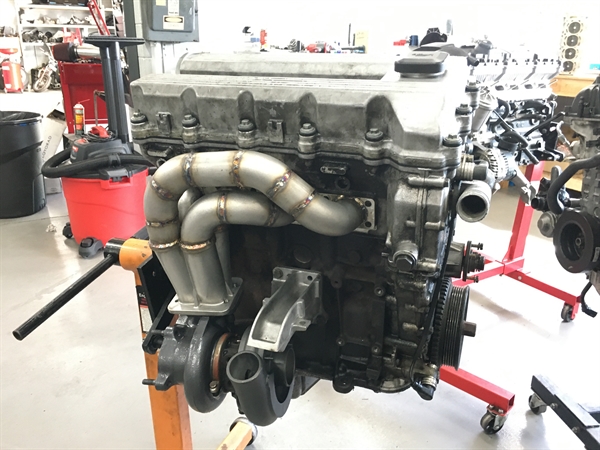The BMW 318ti: A Blend of Style, Convenience, and Performance
The BMW 318ti: A Blend of Style, Convenience, and Performance
Blog Article
Important Considerations for Picking the most effective Engine for Your Needs
In the realm of selecting the suitable engine to fulfill your demands, numerous critical variables need careful consideration to make certain ideal efficiency and effectiveness. From the nuanced balance in between power and efficiency to the often-overlooked facets of upkeep and service needs, each element plays an essential role in identifying the most ideal engine for your specific demands.
Power and Performance
When examining engines for optimum efficiency, it is vital to prioritize both power output and efficiency. Power output gauges the capacity of an engine to produce power, which directly impacts its performance. A high power outcome is crucial for requiring tasks such as durable applications or high-speed requirements. It makes sure that the engine can deal with the work successfully and efficiently. However, power alone is not adequate; effectiveness plays a significant function in identifying the total efficiency of an engine. Efficiency describes just how well the engine transforms fuel into useful energy. An extra effective engine will certainly provide much better mileage, reduced discharges, and decreased operating costs. Striking the appropriate balance in between power output and performance is essential to choosing an engine that satisfies your details needs. It is crucial to consider factors such as the planned use the engine, ecological impact, and long-lasting expense ramifications when making this choice. By meticulously reviewing both power and effectiveness, you can pick an engine that supplies ideal performance and fulfills your requirements effectively.
Gas Effectiveness and Economic Climate
Gas efficiency refers to the engine's capability to transform fuel into power with very little waste, directly influencing operating expenses and environmental sustainability. Engines with higher gas efficiency not just reduce gas expenses however likewise reduce carbon discharges, contributing to a greener procedure.

Compatibility and Application
Thinking about the fuel effectiveness and economic situation of an engine, the following crucial element to address is its compatibility and application within details operational contexts. Compatibility refers to exactly how well the engine integrates with the general system or tools it powers.
Various engines are designed for particular functions, whether it be industrial equipment, aquatic vessels, cars, or power generators. Understanding the desired application enables for the option of an engine that can supply the required power outcome, torque, and functional qualities.
Upkeep and Solution Demands
Maintenance and solution requirements play an important duty in guaranteeing the longevity and optimum efficiency of an engine. Normal maintenance is vital to avoid failures, expand the lifespan of the engine, and maintain its efficiency. When selecting an engine, it is very important to think about the producer's recommended upkeep schedule and the availability of service facilities or qualified specialists.
Variables such as the regularity of oil modifications, filter replacements, and overall assessments can dramatically affect the engine's performance. Some engines may need even more constant maintenance based on their style and usage, while others might have longer periods between maintenance checks. It is essential to follow these service demands to avoid pricey repair services and unforeseen downtime.

Cost and Budget Plan Considerations
When picking an engine for a certain application,Spending plan constraints frequently play a significant duty in the decision-making procedure. When thinking about the expense and budget plan effects of picking an engine, it is necessary to examine not just the initial acquisition rate but also the long-lasting expenditures associated with upkeep, gas usage, and possible upgrades or repair services. It is vital to strike an equilibrium in between the ahead of time price of the engine and its overall lifecycle costs to ensure that the selected engine continues to be monetarily sustainable throughout its operational life-span.
Elements such as fuel reliability, efficiency, and longevity can straight influence the complete expense of possession of an engine. While an extra costly engine may have higher upfront costs, it can possibly result in lower upkeep and fuel costs over time, hence using far better value in the lengthy run.
Final Thought

Gas efficiency refers to the engine's capability to transform fuel into power with minimal waste, straight influencing operating costs and ecological sustainability.Elements affecting fuel efficiency consist of engine style, burning effectiveness, and general efficiency optimization. In addition, selecting the proper gas kind and quality as suggested by the engine producer can even more boost effectiveness and extend engine life-span.
Engines with excellent use attributes and easily available parts can my sources decrease maintenance prices and decrease the time the engine is out of operation - bmw 318ti. It is essential to strike a balance in between the in advance cost of the engine and its overall lifecycle expenses to make sure that the selected engine remains economically lasting throughout its functional life expectancy
Report this page